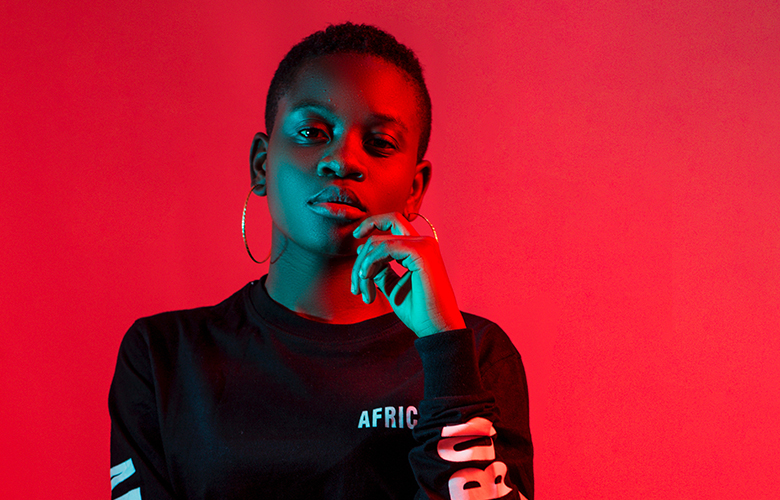
Artists and Creatives are often focused with the creation of their work and the artistic process. And rightly so, they should be focused on their artistry and developing their work. However in the 21st Century, in order for an artist or creative to succeed within her craft, she must start to understand the business of the arts and how that affects the distribution and visibility of her work.
The Business of the Arts refers to all marketing, transactional, promotional, social media management and business practices connected to the artist and her work. These activities usually occur after the work has been created, is completed, and ready to be distributed and shared with the public.
Artists and Creatives should begin to internalize their work as commodities and products in order to encourage their understanding of the ownership of their work. Ownership creates power and the artistic commodity can become an asset with real tangible value.
Promoting and protecting that asset is part of mastering the business of the arts.
A trademark can be any word, phrase, symbol, design, or a combination of these things that identifies your goods or services. This includes the artist’s name. It’s how customers, consumers, and supporters recognize you in the world and distinguish you from your competitors.
A trademark:
Many artists and creatives hesitate to trademark their name, word, phrase, symbol, design, because they think they’re not well known or successful enough yet. In fact, it’s the opposite! If an artist has decided that this is her full-time work, then she should take all of the necessary steps to ensure long term economic success. There is no benefit in delaying.
There are many legal and business benefits associated with registering a trademark.
Legal Benefits:
Business Benefits:
There have been 6.7 million trademark applications filed with the US PTO since 1985, including many celebrity trademarks.
Taylor Swift: She is in the processing of trademarking her lyrics and song titles.
Black Chyna: She tried to trademark her future married name Angela Kardashian but Kourtney, Kim, and Khloé Kardashian — under their corporations 2Die4Kourt, Kimsaprincess Inc., and Khloemoney Inc. blocked her from registering the trademark.
Kylie Jenner: She trademarked Stormiworld, a portmanteau of her daughter’s name and Travis Scott’s album AstroWorld.
Donald Trump: He applied for his “Make America Great Again” trademark in 2012 — days after the presidential election. That application was approved only in July 2015.
50 Cent: He registered his artist name with the U.S. Patent and Trademark Office in July 2002, a year before his debut album, “Get Rich or Die Tryin’,” hit the shelves and propelled him to fame. His trademark was approved in 2004.
Artists and Creatives need to be forward thinking in their careers and focus on the artistic side and business side of their craft. In 2021, it is indispensable for an artist to promote and protect her artistry to ensure long term success. One of the first ways to begin is to file a trademark.
Business Of The Arts: Collaboration


Elektra B. Yao, Esq. is the founder and principal attorney at Yao Law Group a full service, comprehensive immigration law firm. Elektra is admitted to the New York Bar and she practices U.S. Immigration and Nationality law and Deportation Defense in all jurisdictions of the United States of America. Elektra is a very active attorney and is a member of The American Immigration Lawyers Association and The New York City Bar Association, where is she is a member of several committees. As a multicultural attorney, with immigrant parents from Italy and Cote D’Ivoire, Elektra is fully fluent in French, Italian, and Spanish. She has lived, studied, and worked internationally in the US, the EU, and Africa. Not only does she understand the language her clients speak, she understands the cultural landscape of where they come from. Elektra earned her Bachelor’s Degree in Communication Arts from Marymount Manhattan College in NYC, one of the top art schools in the nation. During her undergraduate university career, Elektra wrote, directed, and produced two documentaries (N*gga What? and The Choking Game) which were screened in Texas and New York City. During college, she worked for MTV, the Style Network, and other distinguished production companies in the Film and TV industry. More about her academic & professional achievements: Elektra earned her Juris Doctor from Lewis and Clark Law School, a nationally ranked, top-tier law school. As a dedicated international professional, Elektra studied in international contexts. She studied in London under Loukas Mistelis, the Professor and Director of the School of Arbitration at the prestigious UK law school Queen Mary University. She also studied at the Peking Law School, the leading Chinese law school, where she earned a Certificate in Chinese Business and Civil law; along with studying at the internationally renowned and prestigious Sorbonne University in Paris, France and in Florence, Italy where she earned Certificates in Comparative Law. Based on her excellent track record, Elektra was also invited to study Eastern European Law at Eotvos Lorand University, the #1 ranked law school in Hungary. She has also completed all of the coursework for a Master’s in Law in European and Spanish Law from the University of Salamanca. Additionally, she holds several Certificates in Italian and European Immigration Law and Policy. Elektra spent several years working for leading boutique immigration law firms in New York City where she developed her expertise in employment-based and family-based immigration law. Throughout her tenure at boutique law firms, Elektra secured artists visas, business visas, and green cards for artists, professionals, and families. The foundation of Elektra’s excellent track record is her belief in customized immigration legal services. Each client has unique needs and Elektra has always recognized that throughout her career. Frustrated at how law firms did not personalize legal services for each client, Elektra founded Yao Law Group. The Yao Law Group offers concierge immigration legal services, in which every client is unique. At Yao Law Group, clients are recognized as people with their own unique story and profile. At Yao Law Group, we understand how delicate the immigration process is, which is why we work together with clients to craft strong, personalized legal petitions to create long-lasting success.
Read Full Profile© 2021 TheatreArtLife. All rights reserved.

Thank you so much for reading, but you have now reached your free article limit for this month.
Our contributors are currently writing more articles for you to enjoy.
To keep reading, all you have to do is become a subscriber and then you can read unlimited articles anytime.
Your investment will help us continue to ignite connections across the globe in live entertainment and build this community for industry professionals.